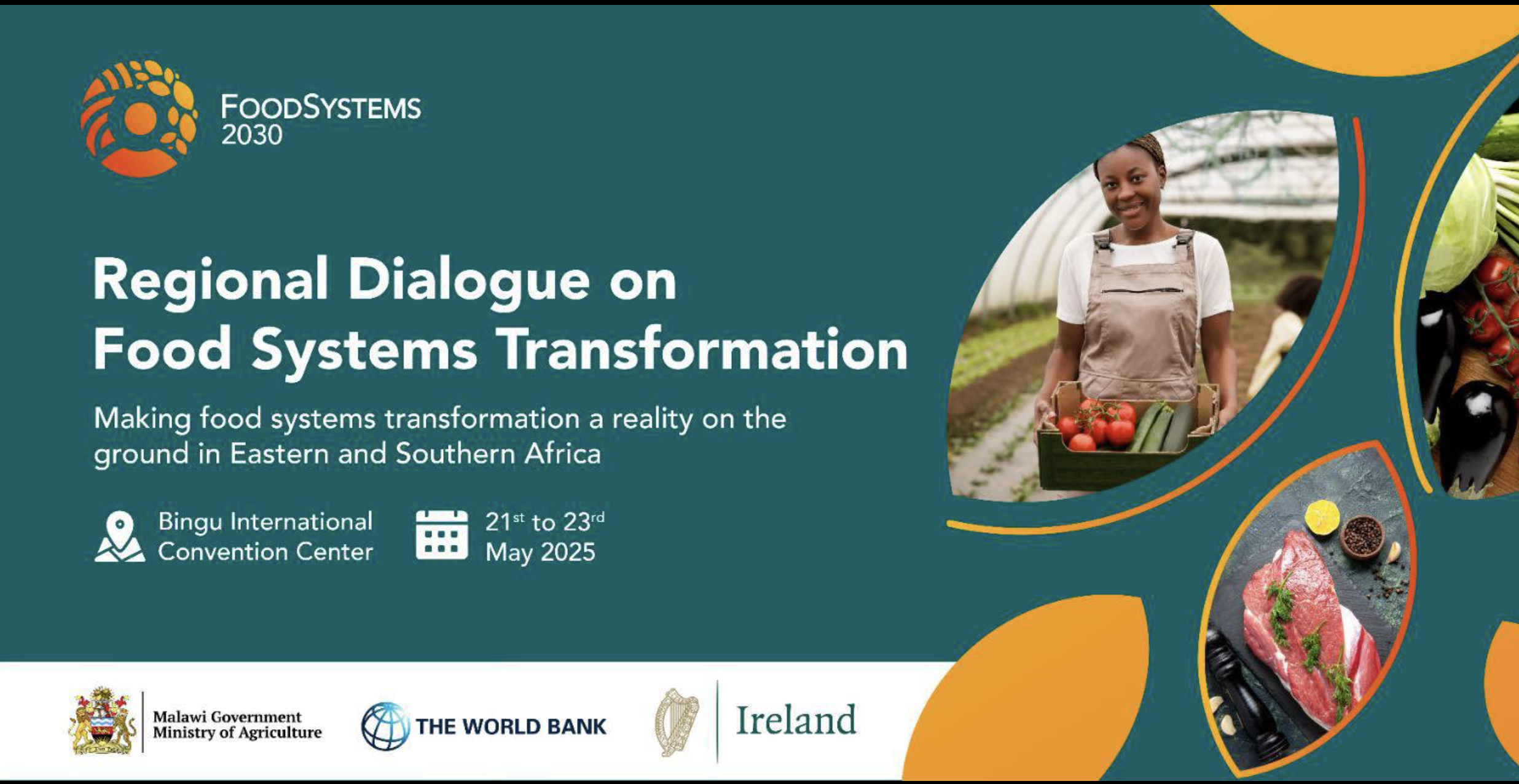
By Special Correspondent | Online — April 24, 2025
In a deeply reflective and forward-looking presentation delivered virtually during the Regional Dialogue on Food Systems Transformation, renowned agricultural economist and Executive Chairperson of AKADEMIYA2063, Dr. Ousmane Badiane, provided one of the most comprehensive retrospectives on Africa’s agricultural reform journey—while charting a bold and necessary course forward.
Titled “What & How of Food Systems Transformation: Twenty Years of CAADP Implementation – Lessons for the New Kampala Agenda,” the address was a clarion call for policymakers, development partners, and regional blocs to confront the hard truths, celebrate progress, and recommit to deep institutional reforms under the upcoming Kampala CAADP Cycle (2026–2035).
“Let us not lose the momentum built over the past 20 years. Instead, let us deepen it with clarity, courage, and commitment,” Dr. Badiane implored his audience.
Rewinding the Clock: What Came Before CAADP
Dr. Badiane began by analyzing the landscape of food systems strategies prior to CAADP, the Comprehensive Africa Agriculture Development Programme, established in 2003. These earlier strategies, he noted, were often externally driven, reactive, and lacked a unified framework for accountability or results tracking.
“Before CAADP, Africa’s agricultural policies were shaped more by donor paradigms than national realities,” he said. “There was little continuity, and the results were uneven, at best.”
This disjointed approach led to low agricultural GDP contributions, stunted growth, and persistent poverty, particularly in rural regions heavily reliant on agriculture.
CAADP’s Achievements: A Foundation Worth Building On
With the advent of CAADP, Dr. Badiane explained, Africa began embracing data-driven, country-owned, and inclusive agricultural strategies. Over the course of two decades, countries that adopted and fully implemented CAADP principles—such as Rwanda, Ethiopia, and Ghana—experienced stronger economic performance and greater resilience in their food systems.
Among the key CAADP successes he highlighted were:
- The Maputo and Malabo Declarations, which set clear targets for public expenditure in agriculture.
- The BR (Biennial Review) mechanisms, which introduced a performance culture and improved transparency.
- National Compacts and Investment Plans, which aligned public and private investments with strategic priorities.
“CAADP helped African countries to not only plan better but also to speak the same language on food systems transformation,” Dr. Badiane said.
However, he cautioned that these gains were now under threat from stagnating performance indicators, weakened political commitment, and institutional fatigue.
Warning Signs: The Plateauing of Progress
Despite early momentum, Dr. Badiane presented a sobering analysis of current trends under the Malabo Declaration cycle (2015–2025). Using data from AKADEMIYA2063’s policy brief series and ReSAKSS performance dashboards, he showed that most countries are falling short of targets for agriculture growth, poverty reduction, and public expenditure efficiency.
He emphasized that even if all countries achieved the technical benchmarks of 5% annual growth and 9% public agricultural expenditure, most would still fail the Biennial Review (BR) scoring system—underscoring a critical gap between ambition and measurable impact.
“Binary scores cannot fully capture national realities. We must unpack the nuance and understand country trajectories over time,” he warned.
He identified several systemic challenges, including:
- Overreliance on external financing
- Lack of institutional continuity
- Weak capacity in policy implementation and tracking
- Poor data quality and delays in reporting
The Kampala Agenda: Five Lessons for the Next Chapter
Looking ahead to the Kampala CAADP Cycle (2026–2035), Dr. Badiane offered five key lessons to guide the continent:
- Recapturing Momentum: Africa must reverse the signs of stagnation by accelerating implementation and investing in institutional renewal.
- Effective Domestication and Alignment: Like the Maputo era, Kampala must emphasize structured, inclusive consultations that yield actionable and government-endorsed compacts.
- Evidence-Driven Approaches: Countries should begin by assessing their current positions vis-à-vis new targets and use this data to develop roadmaps and milestones.
- Filling the Data Gaps: Acknowledging the value of the Biennial Review system, Dr. Badiane stressed the need to improve data accuracy, use geospatial and AI technologies, and enhance national statistical capacities.
- Leveraging Centers of Excellence: Regional bodies and think tanks must be empowered to support capacity building, data management, and peer learning across the continent.
“Kampala must move from paper to performance,” he said. “We must create compact agreements that are signed, costed, and implemented with the same urgency as we give to elections or emergencies.”
What Makes CAADP Unique—and Why It Still Matters
Reaffirming CAADP’s relevance, Dr. Badiane emphasized its incrementality—a flexible architecture that allows for adaptation over time without losing its core principles of inclusivity, accountability, and country ownership.
He called on African Union member states, donors, and stakeholders to view the Kampala process not as a reset but as an evolution—a chance to fine-tune what works and discard what doesn’t.
“African agriculture needs bold leadership, yes—but it also needs institutional patience. CAADP is our roadmap. Let us not discard it just because the journey is long,” he remarked.
Closing Reflection: Agriculture as the Engine of Transformation
Dr. Badiane’s address ended on a powerful note. Drawing on decades of empirical research, policy advising, and thought leadership, he reminded the continent that agriculture remains Africa’s most potent tool for inclusive growth, employment, and food sovereignty.
But he warned: transformation will not be achieved by declarations alone.
“It will require political courage, regional solidarity, and a renewed commitment to learning from our own past,” he said.
As the screen faded to black and the Zoom session concluded, one thing was clear: the Kampala Agenda will not be defined by what is written—but by what is done.

2 thoughts on “Dr. Ousmane Badiane Urges Africa to Rekindle CAADP Spirit in Kampala Agenda for Food Systems Renewal”
Comments are closed.